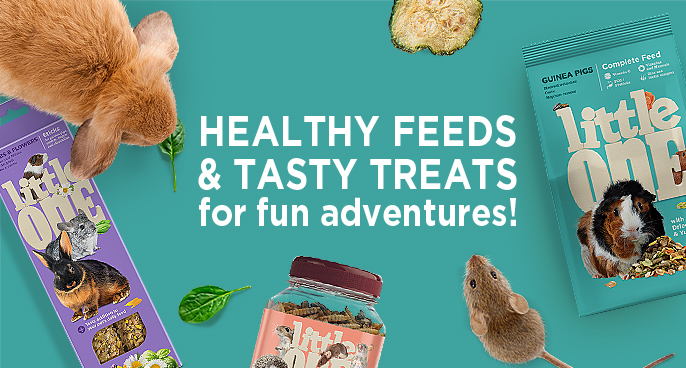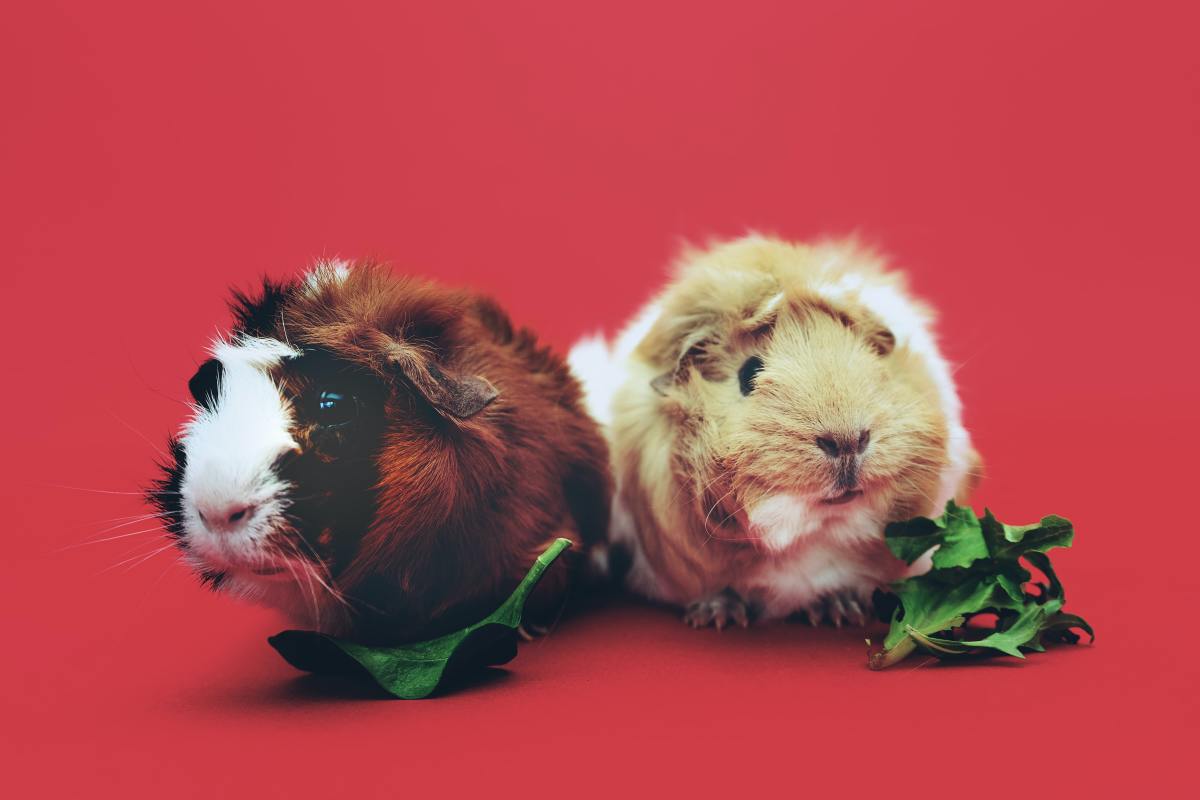Guinea pigs, or cavies, are delightful pets known for their playful antics and affectionate nature. These small creatures bring a lot of joy to any household, but providing them with the proper nutrition is essential to maintaining their health and happiness. Understanding their dietary needs can seem overwhelming, but this detailed guide will help you navigate the complexities of guinea pig nutrition and ensure that your pet gets the best care.
READ MORE:
Funny Guinea Pig Names
Choosing the Perfect Name for Your Guinea Pig
Understanding Guinea Pig Purring: A Guide to Their Vocalizations
Guinea Pig Care: From Nibbling to Napping
Contents
- 1 The Importance of a Balanced Diet for Guinea Pigs
- 2 Essential Nutrients for Guinea Pig Health: A Comprehensive Guide
- 3 Safe and Healthy Foods for Guinea Pigs: A Detailed List
- 4 Foods to Avoid: Toxic and Harmful Options for Guinea Pigs
- 5 Feeding Your Guinea Pig: Best Practices and Guidelines
- 6 Choosing the Right Guinea Pig Food: A Review of Commercial Options
- 7 Conclusion
The Importance of a Balanced Diet for Guinea Pigs

Guinea pigs are herbivores, meaning they require a diet that is high in fiber and low in fat and protein to remain healthy. A well-balanced diet plays a crucial role in maintaining their physical health, supporting their digestive system, and contributing to their overall well-being. Here are some reasons why a balanced diet is vital for your guinea pig:
Promotes Healthy Digestion
Guinea pigs have a specialized digestive system designed to process high-fiber food. A lack of fiber in their diet can lead to various health issues, such as digestive stasis, dental problems, and hairballs. By providing adequate fiber through hay and other dietary components, you help keep their digestive system functioning properly.
Supports Overall Health and Longevity
A healthy, balanced diet contributes to the long-term health of guinea pigs, just as it does for humans. Proper nutrition helps prevent obesity, which can lead to serious health problems such as heart disease, joint pain, and diabetes. A balanced diet also supplies essential vitamins and minerals that support overall well-being.
Contributes to Mental and Emotional Well-Being
Feeding your guinea pig a variety of nutritious foods not only keeps them physically healthy but also stimulates their mind. Guinea pigs are intelligent, curious animals, and providing them with an interesting and varied diet can keep them mentally engaged and emotionally content.
Essential Nutrients for Guinea Pig Health: A Comprehensive Guide

To ensure your guinea pig thrives, their diet must include a range of essential nutrients. Here are the key components that should form the foundation of your guinea pig’s daily meals:
1. Timothy Hay: The Foundation of a Healthy Diet
Timothy hay should constitute about 80% of your guinea pig’s daily intake. It is an excellent source of fiber, which is vital for promoting healthy digestion and preventing digestive problems. Timothy hay also provides essential vitamins and minerals that contribute to your guinea pig’s overall health.
Choosing the Right Hay
When selecting timothy hay for your guinea pig, consider the following:
- Color: Fresh hay should be green, as yellow or brown hay may be older or exposed to sunlight, which can reduce its nutritional value.
- Dust and Mold: Avoid hay with dust or mold, as it can irritate your guinea pig’s respiratory system.
- Smell: Good quality hay should have a fresh, sweet scent. Steer clear of hay that smells musty or sour.
2. Pellets: A Supplement to Hay
Pellets are an important addition to your guinea pig’s diet but should not replace hay as the main food source. Pellets should make up about 15-20% of their daily intake. Look for pellets formulated specifically for guinea pigs, with a high fiber content and no added sugar or fat, which can cause weight gain and other health problems.
3. Fresh Vegetables: A Variety is Key
Fresh vegetables should comprise about 10-15% of your guinea pig’s diet. They provide essential vitamins and minerals. Some good choices include romaine lettuce, bell peppers, cucumbers, and carrots. It’s best to introduce new vegetables gradually and in small amounts to prevent any digestive upset.
4. Fresh Fruits: In Moderation
Fruits should make up about 5% of your guinea pig’s diet, as they are high in sugar. While guinea pigs enjoy fruits like apples, strawberries, and blueberries, these should only be given as occasional treats. Always remove any seeds or pits before offering fruits to your pet.
Safe and Healthy Foods for Guinea Pigs: A Detailed List
Here’s a comprehensive list of safe foods that are beneficial for your guinea pig:
Vegetables:
- Romaine lettuce
- Bell peppers
- Cucumbers
- Carrots
- Zucchini
- Spinach
- Kale
- Broccoli
- Cauliflower
- Celery
- Parsley
- Cilantro
Fruits:
- Apples
- Berries (strawberries, blueberries, raspberries)
- Bananas
- Oranges
- Melons
- Kiwi
- Mangoes
- Pineapple
Other Plants:
- Dandelion leaves
- Chamomile flowers
- Rose hips
- Nasturtium flowers
- Clover
- Basil
- Peppermint
- Oregano
Treats:
- Small amounts of nuts (almonds, hazelnuts, walnuts)
- Dried fruits (raisins, cranberries, apricots)
- Sunflower seeds
- Pumpkin seeds
- Popcorn (plain, no butter or salt)
Foods to Avoid: Toxic and Harmful Options for Guinea Pigs

While there are many healthy foods for guinea pigs, certain foods are toxic and should be avoided at all costs. Here are foods that should not be given to guinea pigs:
High-Sugar Foods:
- Chocolate
- Candy
- Processed treats
- Sugary cereals
- Cookies and cakes
Dairy Products:
Guinea pigs cannot digest dairy, so avoid giving them milk, cheese, yogurt, and ice cream.
Meat and Animal Products:
As herbivores, guinea pigs should never be fed meat or animal products, as these can cause digestive issues and health problems.
Vegetables to Avoid:
- Potatoes
- Avocado
- Rhubarb
- Tomato leaves and stems
- Nightshade vegetables (tomatoes, eggplants, peppers)
Fruits to Avoid:
- Grapes
- Cherries
- Mangoes
- Plums
Feeding Your Guinea Pig: Best Practices and Guidelines
To ensure your guinea pig is eating a proper diet, here are some best practices to follow:
Fresh Water
Always provide fresh, clean water for your guinea pig. Make sure their water bottle or bowl is cleaned daily, and change the water at least once a day.
Monitoring Food Intake
Monitor your guinea pig’s food intake. If you notice a decrease in appetite or any changes in their eating habits, consult with a veterinarian. Loss of appetite can indicate health issues.
Feed at the Same Time Each Day
Establishing a regular feeding schedule helps guinea pigs develop good eating habits and prevents overeating.
Provide a Variety of Foods
Make sure your guinea pig’s diet includes a variety of fresh hay, pellets, vegetables, and fruits. This will ensure they get all the nutrients they need.
Choosing the Right Guinea Pig Food: A Review of Commercial Options

If you choose to provide your guinea pig with commercial food, make sure it meets their nutritional needs. Here’s a review of some popular guinea pig food brands:
Oxbow Essentials Adult Guinea Pig Food
This brand is specifically formulated for adult guinea pigs, offering high fiber content for digestive health. It also contains stabilized vitamin C, which guinea pigs cannot produce on their own.
Small Pet Select Guinea Pig Food Pellets
Made with 100% timothy hay, this brand is free of fillers. It contains added vitamins and minerals but may come at a higher price point.
Kaytee Forti-Diet Pro Health Guinea Pig Food
This balanced formula includes pellets, fruits, vegetables, and hay, but some guinea pigs may pick out the treats and leave the pellets behind.
Conclusion
Feeding your guinea pig a balanced and nutritious diet is essential for their health and happiness. Providing a mix of hay, pellets, fresh vegetables, and occasional fruits will ensure your guinea pig receives the nutrients they need. Be sure to introduce new foods slowly and monitor your guinea pig’s intake to avoid any digestive issues.
By following the guidelines in this guide, you can ensure your guinea pig enjoys a long, healthy life, bringing you joy and companionship for years to come.
